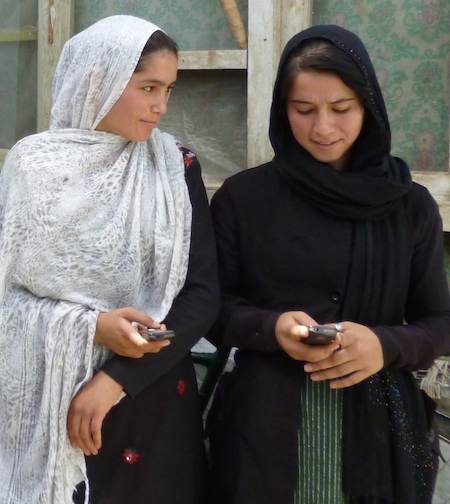Ustad Mobile to scale mobile ed tech programs to the Middle East

Access to technology has long been seen as key to developing
education programs in low-income countries, but the availability of
smartphones, laptops, and tablets is often limited where they’re
needed most.
During a stint heading up MIT’s One Laptop Per Child program in
Afghanistan, Mike Dawson found that laptops might not be the most
efficient way to deliver educational materials to the
underserved.
In 2012, he founded Ustad Mobile as a vehicle to developing
educational software that can be used on the types of phones that
are already in widespread use in low-income countries. Ustad sells
its software to education-focused NGOs working in the region, who
then operate it with the help of the Ustad team.
“[I asked myself], how do I provide the same sort of education
technology experience without needing everyone to go out and buy
new toys, because that is not going to be sustainable?” said
Dawson. “That is when I came across the idea of using feature phones [low-end mobile phones limited in
capabilities compared to today’s smartphones], because they support
audio, video, interactive quizzing, and games.

From South Asia to the Middle East
Having cut its teeth in Afghanistan, the company is now planning
to expand to Iraq with support of a new contract with Qatar-based
group Silatech, which
plans to use Ustad Mobile’s products to provide users throughout
the region with virtual simulated job interviews, advice on
budgeting and finance, and instructions on how to use a job
portal.
In 2015, Ustad Mobile is also hoping to develop relevant content
in Arabic that can be useful for Syrian and Palestinian refugee
populations.
“The system works without requiring a mobile signal while it’s
in use, [which] makes it suitable for even the most difficult
regional situations,” said Dawson.
Pilot literacy project for women in
Afghanistan
Dawson kicked off Ustad’s activities with a pilot literacy
course for women in Afghanistan. This was then turned into an
extended pilot for the United Nations Assistance Mission to
Afghanistan, specifically for women in Afghanistan’s police
force.
After receiving mobile phones loaded with the Afghan literacy
curriculum, the test scores of the 180 women in the pilot group
increased significantly with use of the app.
“Feature phones still
represent the majority of phones bought in low income countries
[even though] the most popular phone on the Afghan networks has not
been manufactured by Nokia for the last two years. They are robust,
not going to die quickly, and they have a long-lasting battery,”
Dawson said.
Setting up shop in Dubai, eyeing the Arab
region
Ustad Mobil originally received grant funding from the US State
Department and the Dutch Embassy in Kabul. The company then got
pre-seed funding from the Dubai-based Turn8 accelerator in February
2014.
Dawson set up in Dubai over three years ago when he was working
on other projects. “We set up the company in Dubai to save money
because it is a lot cheaper than bringing people to Afghanistan –
and Kabul is not the most attractive posting for some people,” he
said. “Dubai is also a hub for the emerging markets” in the
surrounding region.
Ustad, which in Hindi, Dari, and Pashto means ‘teacher’ or
‘master’, has earned $60,000 USD from contracts with NGOs since
February 2014 and has about 1,000 learners using various different
versions of the software.
 Identifying NGO
Identifying NGO
pain points
According to Dawson, one of the key challenges to developing
education in low-income countries is the ability to track the usage
and progress among students and teachers. Ustad Mobile allows NGOs
to remotely track the use of the app and allows the usage data to
be analyzed.
The app is distributed by publicly funded organization, Dawson
says, and “they need to be accountable for where the money is
going. Right now, education has a massive accountability problem.
Billions go in, and we don’t even know if, in the instance of a
remote school, the kids and teachers are coming to school, never
mind the learning outcome,” said Dawson.
“Ustad Mobile helps to address the accountability problem. The
donor or organization can log in to a statistics dashboard and see
how long it has been used, what are the quiz scores, and how many
are actively studying. All the data gets evaluated as a
by-product,” he added.
The company charges $0.05 USD per month to track each student on
the program in addition to services in training and
support.
Ustad Mobile has developed an Android app that helps demonstrate
the software to influencers and decision-makers in target
countries. Dawson’s said that the scope for the software can be
expanded beyond literacy to teach a variety of other skills.
“Literacy is a pretty basic starting block, but things like
employability, how to do a job interview, financial skills… that is
what is being planned for Iraq at the moment,” Dawson said.

Leave a Reply